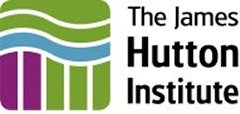(Framework for Evaluation and Assessment of Regional Land Use Scenarios)
FEARLUS is a part of the Land Use Change Modelling project within the Land Use Change research programme at the Macaulay Land Use Research Institute. Land use change is a vital aspect of the development of coupled socio-ecosystems at a range of scales from the local to the global. FEARLUS is a response to the difficulties of understanding land use change, and hence of forseeing the likely consequences of possible changes in the complex network of processes that produce it. These include local biophysical factors, climatic and economic conditions, technical innovation, social, cultural and institutional influences, and policy-makers' decisions. Moreover, changes in land use can themselves affect some of these constraints and influences on future change. We believe that understanding land use systems requires models which explicitly represent, in simplified form, the behavioural heterogeneity, feedback processes, and multi-level spatial and institutional structures present in the real world. We have therefore adopted agent-based simulation modelling as the central component of our work in FEARLUS, using the Swarm system developed at the Santa Fe Institute. The initial FEARLUS project ran from April 1998 to March 2003. Work is now underway on extending FEARLUS to deal with issues of river basin management planning, in connection with the project: "Development of socio-economic methods to synthesise stakeholder priorities - using implementation of the Water Framework directive as a case study"
- Coupled Socio-Ecosystems
- Agent-Based Social Simulation
- FEARLUS Models
- FEARLUS Publications
- FEARLUS Downloads
- Pilot Grid project

